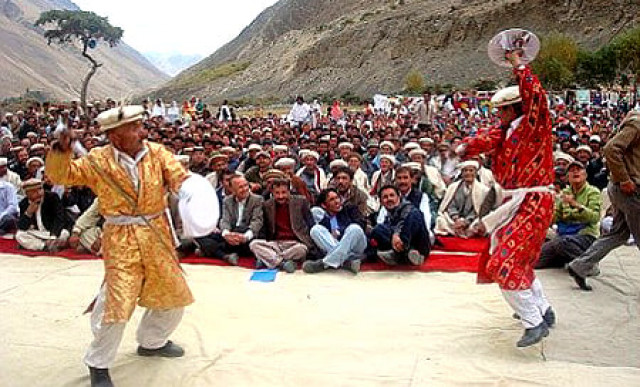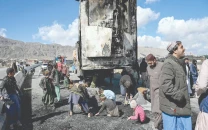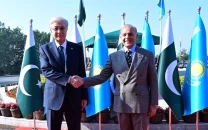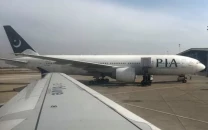Seat of culture: Radicalism alien to Swat, Italian scholars agree
Both men visited the region a few years ago and stayed there for some time.

Seat of culture: Radicalism alien to Swat, Italian scholars agree
Extremism is completely alien to Swat, two Italian scholars of linguistics and history agree.
Dr Umberto Sinatti, director-general of the Italian Institute for African and the Orient (IsIAO), and Matteo De Chiara, who has done his PhD in Iranian philology and Pashto linguistics, both visited Swat and stayed there for some time, are upbeat about the future of Swat and its people.
Dr Sinatti, who visited Pakistan in 2006 and is much impressed by its people in general and of Swat in particular, told The Express Tribune: “The people of Pakistan personally impressed me a lot. The entrepreneurs were wonderful in the use of advanced technology and I will never forget their hospitality.” “I cannot forget the high consideration the people feel about their cultural heritage…in Islamabad, I saw a statement which said: ‘Our culture is our honour’. I really have never seen such an important statement.”
He said the sites of the Gandara civilisation were of great importance and impressive especially those in the Swat Valley and also in Taxila, adding that ruins in both places were fantastic vis-à-vis the Gandhara art.
Giving an impression of the Swati people whom he met in 2006, he said: “Terrorists were not from among the people of Swat. I met a lot of Swati people. They were far removed from extremism. I am impressed by Pakistan Army…they restored normal life in Swat in such a short time.”
He is optimistic about the future of Swat. “I am sure that Swat will be once again become the Switzerland of Paksitan, and hope that the Swati people will be able to rebuild the economy and will take care of their great cultural heritage.” Highlighting his institution’s publishing prowess, Dr Beniamino Melasecchi, the director of the nstitute’s school for culture and oriental and African languages, told The Express Tribune: “We are publishing (books on) Iranian, Tibetans, Farsi, Chinese, Japanese, Indians, Arab, and Pakistani literature. We play a role to preserve world history.”
IsIAO’s library contains a large collection of precious manuscripts, xylographs, ancient editions, geographic maps and photographs.
Matteo De Chiara, who has worked in the IsIAO library for 10 years, told The Express Tribune: “Staying in Swat was a great experience because people there are very friendly. They are not friends but brothers and very careful for their unique hospitality.”
Matteo, who visited Swat Valley and was known as Matteo Khan there, also saw Taliban during his stay in Swat and according to him, they were too different from the Swati people. He said that extremism “does not fit well in Swat and it will never gain ground there”.
Swat Excavations: IsIAO: A brief introduction
The Italian Institute for African and the Orient (IsIAO) formerly IsMEO, emerged in 1995 by the merging of two world famous institutes: Istituto Itlaio Africano (IIA) and Istituto per il Medio ed Estremo Orriente (IsMEO) for preparing and implementing study and research programmes and promoting cultural and scientific collaboration through exchange of knowledge and experiences of expert and scholars from across the world.
IsMEO was first established in 1933, with Giuseppe Tucci its first executive vice-president, who was a well known figure in Swat Valley. His team started research and excavation of archeological sites at Swat Valley as far back in 1956.
Published in The Express Tribune, June 11th, 2011.



















COMMENTS
Comments are moderated and generally will be posted if they are on-topic and not abusive.
For more information, please see our Comments FAQ